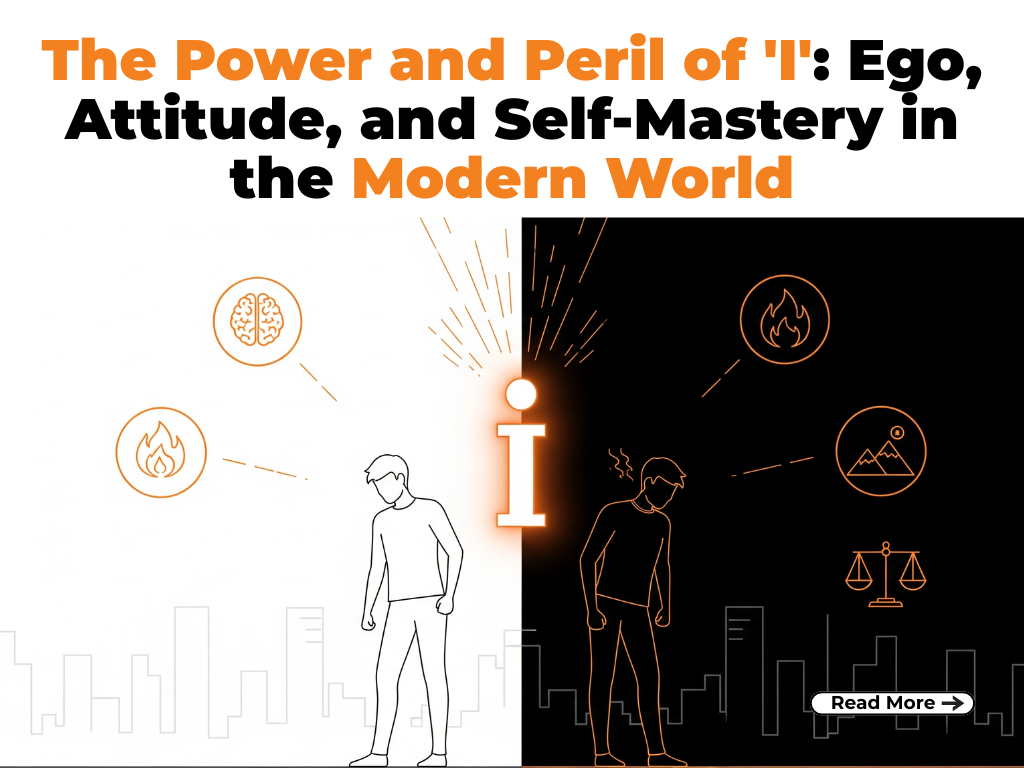- What Is the Scope of B.Tech. Aerospace Engineering [Lateral Entry] in Today’s Industry?
- Why B.Tech. Aerospace Engineering [Lateral Entry] Is a Smart Career Choice Today?
- Key Domains and Advanced Topics in B.Tech. Aerospace Engineering [Lateral Entry]
- Key Skills to Succeed in B.Tech. Aerospace Engineering [Lateral Entry]
- Emerging Technologies in Aerospace & Defense
- Career Options After B.Tech. Aerospace Engineering [Lateral Entry]
- Scope and Salary Trends for B.Tech. Aerospace Engineering [Lateral Entry] Graduates
- Top Recruiters That Hire B.Tech. Aerospace Engineering [Lateral Entry] Students
- What After Graduation? Higher Studies & Certifications
- Final Thoughts
- Frequently Asked Questions (FAQs)
What Is the Scope of B.Tech. Aerospace Engineering [Lateral Entry] in Today’s Industry?
The aerospace engineering scope in India has expanded significantly due to the country’s focus on aviation, defense, and space technology. Students who pursue B.Tech aerospace lateral entry scope gain direct access to advanced courses and research opportunities, making them industry-ready in less time.
Aerospace engineering is one of the most dynamic and futuristic branches of engineering. It focuses on the design, development, testing, and manufacturing of aircraft, spacecraft, satellites, missiles, and propulsion systems. The discipline addresses challenges related to both atmospheric and space travel, blending creativity with advanced technology. Aerospace engineers play a vital role in developing innovative solutions for transportation, communication, exploration, and defense. From building cutting-edge aircraft and spacecraft to improving avionics and propulsion systems, this field shapes the future of mobility and space exploration while contributing to national security and global progress.
At Lovely Professional University (LPU), students entering this programme learn to design, develop, and maintain critical aerospace vehicles such as aircraft, spacecraft, satellites, and missiles. The curriculum blends theory with applied research in areas like flight dynamics, fluid mechanics, applied mechanics, CAD/CAM, mechatronics, and manufacturing engineering.
The future of aerospace engineers in India is promising. With organizations like ISRO, DRDO, and HAL leading ambitious projects, along with global aerospace companies expanding operations in India, opportunities are available across research, design, and industrial sectors.
| Did you know? Riya Dewangan, a B.Tech Aerospace Engineering student at Lovely Professional University, was honored with the Best Poster Presentation Award at the International Conference on Planet, Exoplanets, and Habitability organized by ISRO’s Physical Research Laboratory. This achievement showcases the talent and research potential of LPU’s aerospace students on prestigious international platforms. |
Why B.Tech. Aerospace Engineering [Lateral Entry] Is a Smart Career Choice Today?
When considering why choose aerospace engineering, the reasons go beyond just fascination with aircraft and rockets. It’s about being part of an industry that drives innovation and supports national progress in aviation, defense, and space research.
At LPU, the advantages of aerospace engineering lateral entry are clear: students with prior technical backgrounds bypass the basics and directly engage in advanced aerospace subjects. This accelerates learning while enhancing employability.
At Lovely Professional University (LPU), the B.Tech. Aerospace Engineering [Lateral Entry]programme is designed to prepare students for these challenges through a perfect balance of theory, practical exposure, and research-driven learning. With subjects like aerodynamics, avionics, propulsion, CAD/CAM, applied mechanics, and thermal engineering, along with hands-on projects in automobile and aerospace clubs, students gain real-world experience.
Key aerospace career benefits include:
- Participation in real-world projects such as Formula SAE, Baja SAE India, and Efficycle competitions through LPU’s Automobile Club under SAE India.
- Opportunities to work on concept cars, go-karts, and UAVs, showcasing creativity and technical expertise.
- Exposure to international platforms like BAJA SAE UTEP (Texas) and Formula USA, where LPU students represent India.
This hands-on approach ensures graduates are industry-ready with both technical knowledge and problem-solving abilities.
| Did you know? Aerospace Engineering focuses on the conceptual design, aerodynamic systems, and flight mechanics of flying vehicles. In this discipline, achieving optimal performance and ensuring reliability are of paramount importance, as even minor deviations can impact safety, efficiency, and overall mission success. |
Key Domains and Advanced Topics in B.Tech. Aerospace Engineering [Lateral Entry]
At Lovely Professional University, the curriculum forB.Tech. Aerospace Engineering [Lateral Entry] is carefully structured to blend fundamentals with cutting-edge topics. Alongside aerodynamics, propulsion systems, avionics, aircraft design, and aerospace advanced subjects, students are exposed to:
The curriculum for B.Tech. Aerospace Engineering [Lateral Entry] is carefully designed to balance strong fundamentals with emerging advancements in the aerospace domain. The programme goes beyond classroom teaching, integrating industry projects, lab work, and global competitions to prepare students for real-world challenges.
- Applied Mechanics and Machine Design: Equips students with the ability to analyze, design, and optimize aerospace structures and mechanical components for strength, safety, and efficiency.
- Thermal Engineering & Fluid Mechanics: Provides insights into energy transfer, heat exchange, and fluid flow dynamics—critical for designing jet engines, rockets, hypersonic vehicles, and thermal protection systems in spacecraft.
- CAD/CAM and Mechatronics: Introduces students to advanced computer-aided design tools, simulation software, robotics, and automation that form the backbone of modern aerospace manufacturing and testing.
- Materials Engineering: Focuses on high-performance lightweight composites, alloys, polymers, and ceramics used in advanced aerospace applications. Understanding material properties helps in improving fuel efficiency, durability, and structural safety.
- Industrial Engineering and Manufacturing: Trains students in lean manufacturing, quality assurance, supply chain optimization, and process automation, ensuring efficiency in the large-scale production of aerospace components.
- Automobile Technology as an Allied Domain: LPU’s interdisciplinary approach bridges aerospace with automotive engineering. Students actively participate in global competitions like Supra SAE, BAJA SAE, Efficycle, and Formula Student, where they design and test vehicles—applying principles of aerodynamics, dynamics, propulsion, and material science that overlap with aerospace systems.
- Research & Innovation Exposure: The curriculum integrates mini-projects, research assignments, and innovation-driven activities where students collaborate with faculty on topics like satellite technology, UAV design, propulsion advancements, and AI applications in aerospace systems.
- Hands-on Labs and Simulation Facilities: Students have access to wind tunnels, UAV labs, propulsion testing setups, and 3D printing workshops, giving them practical exposure to designing and testing aerospace components.
- Industry-Oriented Training: Through workshops, internships, and collaborations with organizations like ISRO, DRDO, HAL, and Airbus, students gain industry-relevant experience. Guest lectures by professionals further connect theoretical learning with real-world applications.
This interdisciplinary and application-driven curriculum ensures that graduates not only master aerospace-specific knowledge but also develop transferable engineering expertise applicable to industries like defense, automotive, renewable energy, robotics, and advanced manufacturing.
| Did you know? Lovely Professional University collaborates with international institutions and leading aerospace organizations, giving students opportunities for internships and placements in top companies like Boeing, Airbus, and HAL. This strong industry connection ensures that LPU graduates are well-prepared for careers in aerospace engineering, defense research, and other high-tech sectors. |
Key Skills to Succeed in B.Tech. Aerospace Engineering [Lateral Entry]
Success in aerospace engineering goes beyond classroom knowledge—it requires a blend of technical expertise, analytical ability, and problem-solving skills. Students entering through lateral entry already bring foundational knowledge from their diploma, but excelling in aerospace demands mastering certain advanced skills.
Employers demand more than academic excellence — they want graduates with adaptable aerospace engineering skills. At LPU, students develop:
- Technical skills for aerospace: Hands-on training in CAD/CAM, CATIA, ANSYS, MATLAB, CFD (Computational Fluid Dynamics), and avionics simulation.
- Analytical & Research Skills: Faculty encourage students to work on funded projects, publish papers, and participate in international competitions, preparing them for higher research roles.
- Problem-solving in aerospace engineering: Students work on real challenges such as designing UAVs, increasing fuel efficiency, and reducing carbon emissions in aircraft.
- Leadership & Teamwork Skills: Through the Automobile Club and aerospace research groups, students collaborate on projects like formula cars, efficycles, and concept aircraft.
- Soft Skills & Global Outlook: LPU trains students in communication, project management, and cross-cultural teamwork to prepare them for global aerospace industries.
This mix of technical and interpersonal skills ensures graduates are equally ready for corporate jobs, defense research, and entrepreneurial ventures.
| Did you know? Riya, a B.Tech Aerospace Engineering student, won 1st Prize in Poster Presentation at Droneverse – National Seminar and Flying Competition. |
Emerging Technologies in Aerospace & Defense.
The aerospace and defense sector is undergoing rapid transformation with the integration of cutting-edge innovations. These emerging technologies are reshaping how we explore space, secure nations, and advance air travel. Students pursuing B.Tech. Aerospace Engineering [Lateral Entry] gains exposure to these modern developments, ensuring they are prepared for the future of aerospace engineering.
- UAVs (Unmanned Aerial Vehicles): Increasingly used for defense, surveillance, and commercial delivery.
- Space exploration: India’s lunar and Mars missions inspire students to participate in satellite and planetary research.
- Satellite technology: Used in navigation, communication, and weather forecasting.
- Hypersonic aircraft: Next-gen aircraft that travel beyond Mach 5 speeds are revolutionizing global travel.
- Defense aerospace innovations: From stealth aircraft to AI-driven avionics, these advancements are shaping the industry.
By aligning their projects with these trends, LPU students gain practical exposure to cutting-edge technologies.
| Did you know? Students at LPU have access to advanced laboratories, cutting-edge simulation tools, and modern equipment like wind tunnels and 3D printers. Collaborative spaces and workshops further encourage innovation, creativity, and hands-on learning in aerospace engineering. |
Career Options After B.Tech. Aerospace Engineering [Lateral Entry].
Graduating with a B.Tech. in Aerospace Engineering [Lateral Entry] opens a wide array of exciting career opportunities in aviation, defense, research, and space exploration. The jobs after aerospace engineering are not limited to designing aircraft and spacecraft—engineers are also sought after in allied industries like manufacturing, simulation, and even software development. With the right skillset and training, graduates can build a rewarding future in multiple sectors.
Graduates enjoy a wide range of jobs after aerospace engineering, and LPU’s placement ecosystem broadens these opportunities further.
- Design & Manufacturing Roles: Aerospace engineers can work as design engineers in aircraft and spacecraft development companies.
- Testing & Maintenance Careers: Many engineers specialize in quality control, testing prototypes, or maintaining fleet reliability for airlines and defense organizations.
- Avionics Engineering: A fast-growing field where engineers work on communication, navigation, and control systems.
- Defense & Research Organizations: Through career options in aerospace, students join ISRO, DRDO, HAL, and Air India Engineering Services Limited (AIESL).
- Cross-Industry Roles: Aerospace graduates are also recruited in automobile, defense, IT, and consulting industries due to their strong technical base.
- Entrepreneurship & Start-ups: With the rise of aerospace start-ups in India, LPU graduates with innovative ideas can establish their own ventures.
LPU’s aerospace lateral entry placements are strong because of its industry connections, alumni network, and specialized training programmes that prepare students for interviews and technical tests.
| Professor saying- Aerospace engineering is not just about building aircraft or spacecraft—it is about nurturing innovation, precision, and problem-solving skills that can redefine the future of mobility and exploration. At LPU, we focus on combining strong fundamentals with practical exposure, so that our students are prepared to meet global industry standards.” |
Scope and Salary Trends for B.Tech. Aerospace Engineering [Lateral Entry] Graduates.
The Btech aerospace engineering salary in India typically ranges between ₹4–8 LPA for freshers, with higher packages offered in PSUs, global aerospace firms, and defense organizations.
The aerospace jobs scope is diverse, covering defense services, public sector organizations like NTPC, NHPC, and ONGC, and private players in aviation and manufacturing.
With rising demand for skilled engineers, the pay scale for aerospace engineers grows significantly with experience, certifications, and higher studies.
The aerospace engineering salary in India reflects the growing demand for specialists.
- Entry-level salaries: Fresh graduates in aerospace engineering can expect entry-level packages ranging from ₹4–8 LPA, depending on their job profile, skills, and the organization they join.
- Mid-career salaries: Aerospace engineers in PSUs, global firms, or MNCs earn ₹10–20 LPA after gaining experience.
- Global Opportunities: Aerospace engineers in countries like the USA, Germany, and UAE earn much higher packages, making international placements a strong incentive.
- Research & Defense Pay: Professionals working in ISRO, DRDO, or defense projects not only receive competitive pay but also enjoy job stability and prestige.
The aerospace jobs scope extends beyond India, as multinational companies recruit Indian engineers for global projects. The pay scale for aerospace engineers rises significantly with certifications, higher studies, and experience in specialized domains like avionics or propulsion.
| Hands-on learning is the core of aerospace education. Through projects, design competitions, and industry collaborations, our students don’t just study aerospace—they experience it
Professor Saying |
Top Recruiters That Hire B.Tech. Aerospace Engineering [Lateral Entry] Students.
Lovely Professional University’s placement cell has established strong ties with both national and international organizations. Key recruiters include:
- Government & Public Sector:
- ISRO recruitment for satellite, propulsion, and space projects.
- DRDO aerospace jobs in UAVs, hypersonic missiles, and defense aircraft.
- HAL careers in aircraft manufacturing and testing.
- PSUs like NTPC, NHPC, and ONGC recruit engineers for energy and mechanical projects where aerospace expertise is valued.
- Private Sector:
- Automobile and manufacturing giants like TATA Motors, Mahindra, Honda, Escort, Ashok Leyland.
- Technology leaders like LG, Voltas, Blue Star, Cummins India, Daikin Airconditioning.
- International aerospace players such as Boeing, Airbus, Rolls Royce, and Honeywell.
- Software & Consulting Firms:
- Cognizant, Tech Mahindra, Unisys, Zycus, Think & Learn, and others that hire aerospace graduates for simulation, design, and software integration roles.
- Cognizant, Tech Mahindra, Unisys, Zycus, Think & Learn, and others that hire aerospace graduates for simulation, design, and software integration roles.
These top aerospace companies hiring LPU graduates highlight the university’s reputation as a hub for industry-ready professionals.Top aerospace companies hiring: Tata Motors, Mahindra, Honda, LG, Jet Airways, Blue Star, Cummins India, Ashok Leyland, and global names like Boeing and Airbus.
Additionally, software and consulting firms like Cognizant, Tech Mahindra, Unisys, and Zycus also hire aerospace graduates for simulation and design roles.
What After Graduation? Higher Studies & Certifications.
Completing a B.Tech does not mark the end of learning — graduates often pursue higher studies after aerospace engineering for specialization. Options include:
- M.Tech in Aerospace Options: Propulsion engineering, avionics, aerodynamics, and structural mechanics.
- MBA in Aviation Management: For those seeking leadership and managerial roles in airlines and aerospace companies.
- MS Abroad: LPU students have successfully pursued MS degrees in aerospace and mechanical engineering at top universities overseas.
Additionally, aerospace certifications give graduates an edge in competitive markets:
- Certifications in CATIA, SolidWorks, ANSYS, CFD.
- Specialized certifications in UAV technology, space systems, and avionics.
- Project management certifications like PMP for leadership roles.
Graduates also pursue Ph.D. or research fellowships to contribute to innovation in aerospace materials, propulsion, and defense technologies.
LPU’s mentorship and global tie-ups provide multiple pathways for graduates to continue their academic or professional journeys seamlessly.
Final Thoughts.
To summarize, the aerospace engineering career conclusion highlights that this field is one of the most dynamic, innovative, and rewarding domains in the engineering world. Aerospace engineers are at the forefront of designing advanced aircraft, launching space missions, and developing next-generation defense technologies.
With the rapid growth of private players in aerospace, increased government investment in defense and space programmes, and rising global collaborations between nations, the aerospace future prospects are brighter than ever. The demand for skilled professionals continues to grow in both the domestic and international markets, making aerospace engineering a high-potential career path.
By choosing Lovely Professional University (LPU), students gain an edge through:
- World-class infrastructure with advanced labs, wind tunnels, UAV testing facilities, and simulation tools.
- Experienced faculty and researchers guiding students in cutting-edge domains like aerodynamics, propulsion, and avionics.
- Strong placement and internship networks with organizations like ISRO, DRDO, HAL, Boeing, and Airbus.
- Hands-on exposure through participation in national and international competitions like Supra SAE, BAJA SAE, and Droneverse.
- Research-driven culture that encourages innovation in both aerospace and interdisciplinary fields.
For lateral entry aspirants, LPU offers the perfect platform to fast-track their careers by building on their diploma knowledge and directly engaging with advanced aerospace subjects. This combination of academic excellence, practical experience, and industry exposure makes LPU one of the best universities for pursuingB.Tech. Aerospace Engineering [Lateral Entry] in India.
In conclusion, a career in aerospace engineering is not just about building aircraft or spacecraft—it is about shaping the future of mobility, exploration, and defense. With the right education and guidance at LPU, students can position themselves as leaders and innovators in the global aerospace industry.
Frequently Asked Questions (FAQs)
Q1. What is the scope of aerospace engineering through lateral entry?
Ans. The scope of aerospace engineering through lateral entry is vast, as it allows diploma or equivalent holders to directly enter advanced semesters of the B.Tech programme. This saves time and gives quicker access to specialized aerospace subjects like aerodynamics, propulsion, and avionics. Students gain early exposure to advanced projects, industry-focused training, and research opportunities, which increase their chances of securing high-profile roles in organizations such as ISRO, DRDO, HAL, and leading private aerospace companies.
Q2. What are the top career options in aerospace after graduation?
Ans. After completing the degree, graduates can explore diverse career paths. The most sought-after roles include design engineer, propulsion expert, avionics specialist, quality assurance engineer, and research scientist. Beyond aerospace companies, graduates also find opportunities in allied fields such as automobile engineering, defense services, manufacturing, and IT-based design companies. With India’s growing investments in space missions and defense projects, career options in aerospace continue to expand globally as well.
Q3. What are the eligibility requirements for lateral entry admission?
Ans. To apply for lateral entry aerospace admission FAQs, candidates must hold a diploma or an equivalent qualification in a relevant branch of engineering (such as mechanical, aeronautical, or automobile engineering). They should meet the minimum aggregate percentage specified by the university. At Lovely Professional University, eligible students are admitted directly into the second year of the programme, enabling them to complete the degree in a shorter time while focusing on advanced aerospace engineering subjects.
Q4. What higher studies can I pursue after B.Tech in Aerospace?
Ans. Graduates have multiple options for higher studies after aerospace engineering. They can pursue an M.Tech in Aerospace Engineering options like aerodynamics, propulsion systems, avionics, or aircraft structures. Some opt for MBA programmes in Aviation or Technology Management to take up leadership roles in the industry. Many LPU students also pursue MS degrees abroad in prestigious universities, which opens up global research and career opportunities. Additionally, certifications in CAD/CAM, CFD, avionics, and UAV technologies provide specialized skills highly valued in the industry.
Q5. What salary can I expect after graduation?
Ans The aerospace engineering salary in India varies with the role, company, and skills of the graduate. At the entry level, freshers can expect packages in the range of ₹4–8 LPA. With 3–5 years of experience, aerospace engineers often earn ₹10–15 LPA, especially in defense, aviation, and global aerospace companies. Professionals working in organizations like ISRO, DRDO, or HAL enjoy competitive salaries with additional government benefits. International opportunities are even more rewarding, where salaries can cross ₹25–30 LPA for skilled engineers. The pay scale for aerospace engineers rises significantly for those pursuing higher studies or specialized certifications.

![Career Paths after B.Tech. Aerospace Engineering [Lateral Entry] Career Paths after B.Tech. Aerospace Engineering [Lateral Entry]](https://www.lpu.in/blog/wp-content/uploads/2025/10/B-Tech-Aerospace-Engineering-Lateral-Entry-01.png)


![Career Paths After B.Sc. Information Technology [Lateral Entry] Career Paths after B.Sc. Information Technology [Lateral Entry]](https://www.lpu.in/blog/wp-content/uploads/2026/01/Career-Paths-after-B.Sc_.-Information-Technology-Lateral-Entry-218x150.png)









